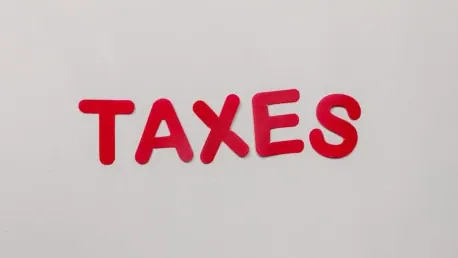The intricate web of tax policies is set for comprehensive examination in an upcoming conference on April 10th, organized by the Tax Foundation, University of North Carolina Tax Center, and MIT Sloan School of Management. Titled “New Directions in Tax Policy: Budgetary and Other Challenges of an Increasingly Complex Tax Code,” the event aims to address the nuanced economic and fiscal challenges posed by the modern tax landscape. This joint initiative targets Congress, the business community, and the general public, providing them with valuable insights into the multifaceted nature of tax policy-making and its long-term impacts in an era marked by high debt and deficits.
Economic and Budgetary Uncertainties
One of the key themes to be explored during the conference is the economic and budgetary uncertainties that arise when Congress enacts tax policies without a thorough understanding of their long-term implications. Of late, there has been a marked trend of legislators adopting measures that carry significant and often underestimated costs. Examples include the expansion of child tax credits and the introduction of renewable energy credits, coupled with the implementation of new business taxes such as the corporate alternative minimum tax. These measures introduce a complex interplay between accounting practices and tax regulations, generating confusion among both taxpayers and budget analysts who struggle to decode the implications.
Tax policy experts will shed light on these complexities, emphasizing the need for careful consideration and strategic planning. Without a clear grasp of the long-term economic and fiscal impacts, lawmakers run the risk of creating policies that are not only financially ambitious but also potentially detrimental. Such unchecked policies can lead to unintended consequences, escalating the nation’s debt and deficit woes. As Congress navigates these murky waters, the insights gleaned from expert discussions could prove crucial in fostering more informed and responsible decision-making.
Panels and Expert Discussions
The conference is set to feature a lineup of leading tax policy experts who will delve into various aspects of the tax code through focused panels and expert discussions. Among these panels, the topic of child tax credits and individual credits will take center stage. Moderated by Andrew Lautz of the Bipartisan Policy Center, this panel will feature insights from David Splinter of the Joint Committee on Taxation (JCT), Ernie Tedeschi of Yale University, and Scott Winship from the American Enterprise Institute (AEI). Their discussion will explore the implications of the recent expansions in child tax credits and how these changes intersect with broader fiscal policies.
Another notable panel will address energy credits, with discussions moderated by Jeff Hoopes of UNC Kenan-Flagler Business School. This session will bring together Gary Hecimovich from Deloitte Tax LLP, Will McBride of the Tax Foundation, and Catherine Wolfram from MIT Sloan. Their combined expertise will provide a thorough analysis of the economic and environmental impacts of energy credits, showcasing the delicate balance between promoting industry innovation and ensuring sustainable fiscal policies.
Further, the intricacies of accounting and business taxation will be tackled in a panel moderated by Michelle Hanlon of MIT Sloan. Experts Alan Cole from the Tax Foundation, Paul Landefeld of JCT, and Cathy Schultz from the Business Roundtable will discuss the interactions between business accounting rules and taxation, unraveling the complexities that businesses must navigate under the current tax regime. Such discussions are poised to highlight the intricate balance required in formulating effective tax policies.
The Way Forward
The intricate web of tax policies is set for a comprehensive examination at an upcoming conference on April 10th. This event is organized by the Tax Foundation, the University of North Carolina Tax Center, and the MIT Sloan School of Management. Titled “New Directions in Tax Policy: Budgetary and Other Challenges of an Increasingly Complex Tax Code,” the conference aims to tackle the nuanced economic and fiscal challenges presented by today’s tax landscape. This collaborative effort focuses on providing Congress, the business community, and the general public with valuable insights into the multifaceted nature of tax policymaking. The discussions will critically analyze the long-term impacts of current tax policies, especially in an era characterized by high national debt and significant deficits. The goal is to offer perspectives and solutions that address both immediate tax code complexities and broader budgetary concerns, ensuring informed decision-making processes that can benefit the entire economy.









